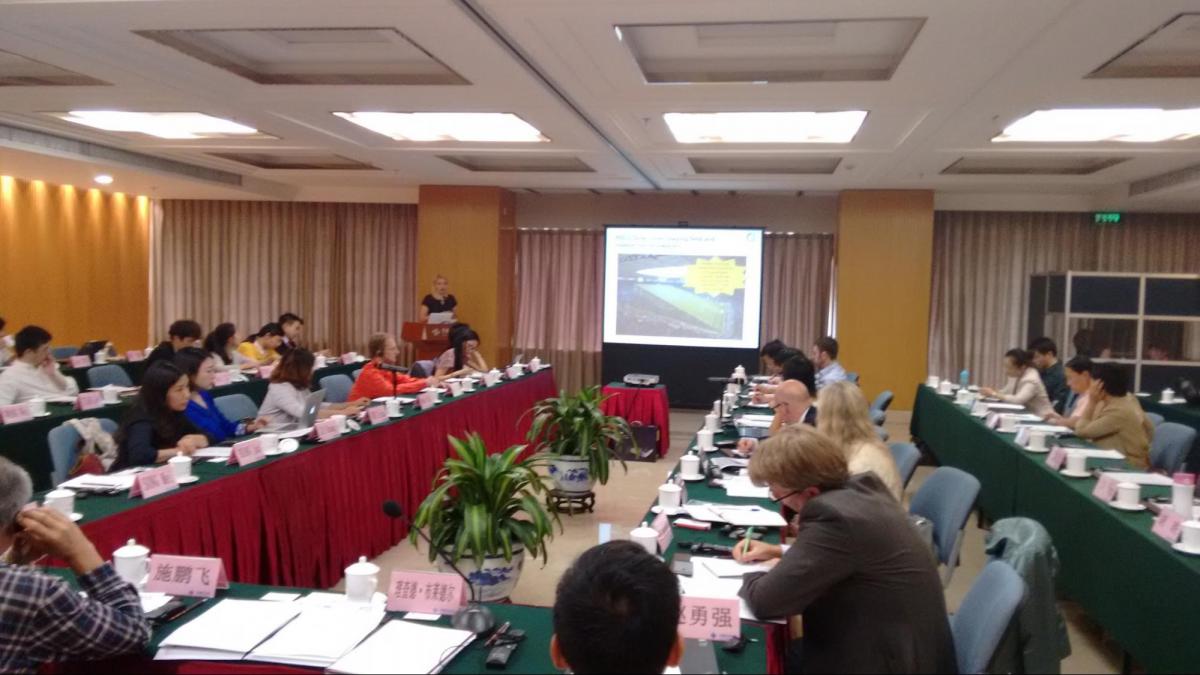Equally Subsidized, but Unequally Sustainable: Coal and Renewable Energy Discussion in China
Beijing—September 16—The first estimate of subsidies to coal producers in China, totaling CNY35.7 billion (US$5.6 billion) in 2013, has been revealed by the Global Subsidies Initiative (GSI) at the Coal and Renewable Energy event held in Beijing on 16 September 2015. The workshop saw government agencies, non-governmental organizations and academics come together to discuss the role of subsidies to coal in China’s move to a cleaner energy mix.

The estimate of CNY35.7 billion (US$5.6 billion) in subsidies to coal production come on top of China’s already reported subsidies to coal consumption. Combined, these subsidies amount to CNY100 billion (US$15.7 billion), which is approximately the same as China’s annual subsidies to renewables. The full breakdown of coal subsidies in China will be published in a forthcoming GSI report.

China acknowledges the need for a reduction in coal use in the coming decades and coal accounts for more than three quarters of feedstock for electricity generation in China. But things are starting to change: a small decline in coal use in 2014 generated speculation that China’s coal use may peak earlier than expected.
Per Ove Eikeland, from the Norwegian think tank Fridtjof Nansen Institute, puts this change down to stronger policy signals starting to take effect and filter through into corporate behavior. Speaking at the event, Eikeland noted that Shenhua, a state-owned integrated coal producer, has now become a significant player in the wind industry, highlighting the industry’s growing diversification efforts.
Although the goal of coal subsidy reform is perhaps widely shared, the design of reform remains a thorny issue. Coal is a significant employer as pointed by professor Song Mei of the China University of Mining and Technology. Around 5 to 6 million people are estimated to be employed in the extraction and processing of coal alone. Many of these are located in so-called “resource based cities” in which the city’s economy is heavily reliant on the coal industry. The rise in renewable energy is predicted to generate additional employment, though the mitigation of the social impacts of job losses in the coal industry must be factored into the design of reforms.
Despite some positive signs that more is being invested in renewable energy, there still remain some regulatory barriers to its full utilization. Zhao Yongqiang, Assistant Director of the China National Renewable Energy Sector, explained that regulation and contracts can sometimes grant priority access to the electricity grid to coal generation, which is also a form of subsidy. This arrangement has led to renewable generators being “curtailed” or shut down, more so than in other parts of the world. In the context of high levels of air pollution, a crucial step is to ensure that existing renewable capacity can be used to the fullest extent possible.
As China transitions to an electricity sector with a greater role for renewables and a smaller role for coal, policymakers will have to develop policy responses to the challenges of the sector. These include: an established coal industry struggling to adapt to changing consumption; physical constraints on grid infrastructure to accommodate the new wave of renewable generation; conflict between policies designed to support the coal industry and promote greater deployment of renewable energy; and the social impacts of job losses in former coal mining and processing regions.
Coal subsidy reform appears to be one more critical tool of reducing China’s dependency on coal. If externalities, particularly air pollution and carbon emissions, are added to the CNY 100 billion fiscal subsidies estimate, the effective cost of coal to China’s government becomes 4-6 times as great as its support to renewable energy. Due to these negative impacts of coal use, a net reduction in coal subsidies over the medium to long term is a key part of China’s energy policy going forward.
For more information, please do not hesitate to contact Richard Bridle at rbridle@iisd.org or Ivetta Gerasimchuk at igerasimchuk@iisd.org.
